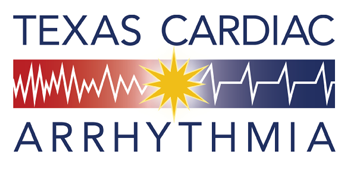About Our Practice
Abbott CATALYST - Clinical trial of atrial fibrillation patients comparing left atrial appendage occlusion therapy to non-vitamin K antagonist oral anticoagulants
The purpose of this randomized study is to compare the safety and effectiveness of the Amulet device compared to non-vitamin K antagonist oral anticoagulants (NOACs) for ischemic stroke reduction. Patients will be randomized 50:50 to either receive the Amulet device or receive NOAC therapy.
The Amulet device is approved in some countries outside of the US but is an investigational device in the US.
Abbott Amulet 2 Veritas - Evaluating the safety and effectiveness of Abbott’s Amulet 2 Left Atrial Appendage occluder device
The Amulet 2 device is designed to prevent thrombus embolization in the Left Atrial Appendage. Thrombus embolization is when a blood plot migrates from its original location in a blood vessel, which can lead to an obstruction in the circulatory system. Following the procedure, patients will receive final imaging to ensure proper placement of the device.
Abbott VOLT-AF IDE Study
This research study will collect data to demonstrate safety and effectiveness of the Volt Pulsed Field Ablation (PFA) System for the treatment of Atrial Fibrillation (AF). It will enroll patients who are scheduled to undergo an ablation for treatment of AF. The Volt PFA System is an investigational device. This means that it is not approved by the Food and Drug Administration (FDA) to treat AF.
This study is currently in follow-up only and is not enrolling new patients
Adagio Medical - Cryoablation for Monomorphic Ventricular Tachycardia IDE Study: EFS and Pivotal
The purpose of this research is to evaluate the safety and effectiveness of the Adagio Medical vCLAS™Cryoablation System (Adagio System) for the treatment of a heart arrhythmia called Ventricular Tachycardia (VT). It is enrolling patients who are scheduled to undergo cardiac ablation to treat the VT. While the FDA has approved the clinical use of this device in a pre-market investigational device exemption (IDE) study, the device has not been approved by the FDA for commercial use in the US.
Advanced TeleSensors - Heart Rate and Respiratory Rate Measurements by the Novel, Radar-based CARDI/O ATX-2410 Remote Cardiac Monitor
The purpose of this study is to determine the accuracy of monitoring heart rate and respiratory (breathing) rate measured by the Cardi/o ATX-2410 device in patients seeing a doctor in a clinical setting. Cardi/o is a contactless, wireless, radar-based sensing monitor for heart rate, and respiratory rate within approximately 3 meters of the device using Wi-Fi. The device passively monitors a patient and transmits information, including continuous heart and respiratory rate and alerts to a healthcare professional’s workstation or phone-based application.
Arga Medtech COHERENT AF - Coherent Sine-Burst Electroporation (CSE) Ablation System US IDE Study for Patients with Atrial Fibrillation
Atricure HEAL-IST IDE Trial - Hybrid Epicardial and Endocardial Sinus-Node SpAring AbLation Therapy for Inappropriate Sinus Tachycardia
AtriCure’s ISOLATOR® Synergy Surgical Ablation System has been cleared under the 510(k) process by the United States Food and Drug Administration (FDA) to ablate the heart to treat cardiac arrhythmias in patients undergoing open heart surgery. It is currently in commercial use in the US and various European countries however for the purposes of this trial will be labeled for Investigational Use Only.
AtriCure IST Registry - Inappropriate Sinus Tachycardia Registry
Biosense Webster OMNY-AF - Assessment of Safety and Effectiveness in Treatment Management of Paroxysmal Atrial Fibrillation with the BWI Pulsed Field Ablation System with OMNYPULSE Catheter
This study will enroll patients who have been diagnosed with symptomatic Paroxysmal Atrial Fibrillation (PAF) and have decided to undergo cardiac ablation. The purpose of this research study is to provide information about the safety and long-term effectiveness of the BWI OMNYPULSE™ Pulsed Field Ablation (PFA) Platform, consisting of the TRUPULSE™ Generator and OMNYPULSE™ Catheter used in conjunction with the CARTO®3 System with the VISITAG SURPOINT™Module PF Index to treat symptomatic PAF. The BWI OMNYPULSE™ PFA Platform is an investigational device that has not been approved by the FDA.
Biosense Webster SmartPULSE PAF - Safety and Effectiveness Evaluation of the THERMOCOOL 4 SMARTTOUCH™ SF Catheter with the TRUPULSE™ Generator for 5 treatment of drug refractory symptomatic Paroxysmal Atrial Fibrillation (PAF)
The BWI PF/RF Ablation system is an investigational device that has not been approved by the US Food and Drug Administration (FDA) for the treatment of PAF.
Boston Scientific CHAMPION-AF - WATCHMAN FLX vs NOAC for Embolic Protection in the Management of Patients with Non-Valvular Atrial Fibrillation
The primary objective of this randomized study is to determine if LAA closure with the Watchman FLX device is a reasonable alternative to non-vitamin K oral anticoagulants (NOACs). The Watchman FLX device has been approved by the FDA but is considered investigational for this study.
This study is currently in follow-up only and is not enrolling new patients.
Boston Scientific HEAL-LAA - Post-Market Real World Outcomes in WATCHMAN FLX™ Pro Left Atrial 3 Appendage Closure (LAAC) Device
This study will enroll patients who have been implanted or will be implanted with a WATCHMAN FLX™ Pro Device. The WATCHMAN FLX™ Pro device is approved for commercial use in the United States and is a newly FDA approved version of the previous device called WATCHMAN FLX™ Device.
This study is observational and will collect and analyze clinical information on patients who receive the WATCHMAN FLX™ Pro device
This study is currently in follow-up only and is not enrolling new patients
Boston Scientific: Rematch - Repeat Ablation of Persistent Atrial Fibrillation, including Mitral Isthmus and Cavo-Tricuspid Isthmus Ablations, with the FARAPULSE Pulsed Field Ablation System
And FARAPOINT™ pulsed field ablation (PFA) catheters for re-treatment of persistent atrial fibrillation (PersAF) after a failed initial procedure. Recurrences of AF are not uncommon after a first ablation procedure. Since PFA is a relatively new ablation modality, clinical evidence regarding use of PFA for repeat procedures is not yet available.
This study recruits patients undergoing a repeat ablation procedure after a recurrence of PersAF, with enrollment lasting approximately 12 months.
Boston Scientific Simplaafy - WATCHMAN FLX™Pro Left Atrial Appendage Closure Device withAlternative Post-Implant Monotherapy
This investigational study aims to understand the most effective treatment plan after a patient receives a WATCHMAN FLX Pro device implant. A WATCHMAN device is commonly used as a preventative measure for patients with atrial fibrillation, to reduce their risk of developing thromboembolism and stroke. Typically, this condition is treated using stroke prevention drug therapies. However, commonly used drugs. such as Warfarin, have been known to pose a risk for bleeding complications. Patients who receive a Watchman implant, however, have a significantly lower rate of stroke and bleeding.
Participants enrolled in this study will be randomly assigned to either receive drug therapy or DAPT treatment after their implant procedure. Patients will be monitored for one year post implant, with periodic imaging and testing done to assess the patient’s health.
DISRUPT-AF - A Registry Based Collaborative to Measure Efficiency, Effectiveness, and Safety of Farapulse™ Pulsed Field Ablation Technology for A trial Fibrillation
This is a registry for patients undergoing an ablation using the FDA approved Farapulse system. The purpose of this Registry is to learn more about the outcomes for patients who receive an ablation using the Farapulse™ Pulsed Field Ablation System for the treatment for Paroxysmal Atrial Fibrillation (PAF), Persistent (PsAF) Atrial Fibrillation, and Long-Standing Persistent Atrial Fibrillation (LSPsAF).
Impulse Dynamics OPTIMIZER Smart Post-Approval Study
The purpose of this post-approval study (PAS) is to evaluate the safety of long-term use of the OPTIMIZER Smart and CCM therapy. The study will also evaluate the effects of CCM therapy on your quality of life and HF symptoms.
Kardium: Globe® Pulsed Field System for Symptomatic Paroxysmal or Persistent Atrial Fibrillation
Patients with symptomatic paroxysmal AF (PAF) and Persistent AF (PsAF) may be eligible to enroll in this study.
Laminar Left Atrial Appendage Elimination (LAAX) Pivotal IDE Study
This study will enroll patients who are scheduled to receive a left atrial appendage (LAA) closure device. The purpose of this research study is to compare the safety and effectiveness of the Laminar LAA Closure System as compared to a commercially available LAA closure device to close off the LAA to eliminate a potential source of blood clots. The study will be randomized into one of two groups by a computer. The device is experimental, which means it has not been approved by the Food and Drug Administration (FDA) for commercial sale.
Impulse Dynamics INTEGRA-D - Assessment of the Safety and Efficacy of a Combined Cardiac Contractility Modulation and Implantable Cardioverter Defibrillator Device for Subjects with Heart Failure and Reduced Ejection Fraction
Medtronic LEADR - Lead Evaluation for Defibrillation and Reliability
This study is currently in follow-up only and is not enrolling new patients.
EBR CT vs TTE for WiSE
The WiSE System delivers leadless LV endocardial pacing for biventricular pacing in Cardiac Resynchronization Therapy (CRT). Transthoracic echocardiography (TTE) is currently used in pre-procedure screening. While effective in many cases, TTE imaging has its limitations, as it is highly operator dependent, and can be impacted by factors such as patient BMI, position of the lungs during respiration, and patient posture. Alternatively, computed tomography (CT) offers high-resolution, reproducible imaging of thoracic anatomy and may provide more reliable visualization of rib spacing, lung position, and left ventricular wall morphology.
Participants who enroll in the study will have previously undergone a CT scan, and will receive a TTE.
MGH POLARIS - Safety and Effectiveness of Pulmonary Vein isOLation And posterioR Wall Ablation wIth pulSed Field Energy in Patients with Paroxysmal and Persistent A
The purpose of this study is to provide information about the safety and long-term effectiveness of the BWI (Biosense Webster) irreversible electroporation (IRE) ablation system consisting of the TRUPULSE™Generator and VARIPULSE™Catheter. It will enroll patients who are scheduled to undergo an atrial fibrillation (AF) ablation to treat AF.
The BWI IRE Ablation system uses a new type of energy source called pulsed field, which uses ultra-rapid electrical fields on the heart muscle to cause IRE to treat AF. The system is investigational and has not been approved by the Food and Drug Administration (FDA).
Medtronic Cryo AF Global Registry - STOP Persistent
Participants in this study are scheduled to have a cryoablation procedure using the Medtronic Arctic Front™ System or Freezor™MAX Family of Cardiac Cryoablation Catheters (Arctic Front™) for the treatment of your persistent atrial fibrillation (AF). This type of procedure targets cardiac tissue that is causing your AF in order to freeze and destroy the abnormal tissue. The purpose of this study is to describe clinical performance and safety data in persistent AF patients treated with the Arctic Front™ and Freezor™MAX Families of Cardiac Cryoablation Catheters, which are approved by the U.S. Food and Drug Administration (FDA).
Medtronic Product Surveillance Registry
Medtronic SPHERE 360 PFA for PAF
Patients with symptomatic paroxysmal atrial fibrillation who are scheduled to undergo an ablation may qualify for this study.
Peerbridge EF-ACT - AI-Enabled Direct-from-ECG Ejection Fraction (EF) Severity Using Cor™ ECG Wearable Monitor
The purpose of this research study is to answer specific questions about the accuracy of an artificial intelligence (AI) Software as Medical Device (SaMD) which is intended to compute ejection fraction (EF) severity from ambulatory ECG wearable patch (a patch to be used while walking around). The AI software is used to process previously acquired continuous ECG data produced by the FDA cleared Peerbridge Cor® ECG Wearable Monitor to aid in screening for left ventricle EF severity classification.
The Peerbridge COR® ECG wearable devices that are being used in this study have been cleared by the United States Food and Drug Administration (FDA). However, the use of the device to estimate EF is considered investigational.
TCAI AWARE - Impact of anxiety on cardiac substrate modification in woman with atrial fibrillation undergoing catheter ablation
The purpose of this study is to evaluate the impact of anxiety on the heart tissue changes leading to non-PV triggers and LA scar in patients after AF ablation.
TCAI hdNOAC - Efficacy of Different Anti-Thrombotic Strategies After Percutaneous Left Atrial Appendage Occlusion (LAAO)
TCAI GSAF - Association of Genetic Variants with Risk of Stroke in Patients with Atrial Fibrillation Off Anticoagulation
TCAI COGNITION - Mild cognitive impairment (MCI) in patients with atrial fibrillation (AF), trajectories of the progression of MCI and factors associated with the progression
TCAI PLATINUM - Impact of post-ablation alcohol intake on arrhythmia recurrence, quality of life and cognition in patients with atrial fibrillation
TCAI PREDICT-CLOT - BioMarker profile in patients developing device thrombus post-LAA occlusion
This study will enroll patients who have had or will be undergoing a left atrial appendage occlusion (LAAO) procedure. A rare but known complication is the development of a clot on the LAAO device. This study will evaluate blood samples to identify blood protein biomarkers that could predict clot formation. The purpose of this study is to examine the association of blood-proteins with LAAO-related clot.
TCAI IVTCC: An International VT Ablation Center Collaborative Group: Multi-center Ventricular Tachycardia Catheter Ablation Registry
TCAI TAP-CHF - A Phase 4, Randomized, Open Label, Multicenter Prospective Comparative Study to Evaluate the Treatment of Atrial Fibrillation in Preserved Cardiac Function Heart Failure
TCAI - Prospective Database of Patient having heart rhythm disorder
TCAI SAVIOR - Safety and efficacy of pulmonary vein isolation usi ng pulsed - field ablation (PFA) combined with either PFA - based left atrial posterior wall isolation or Vein of Marshall ethanol ablation in patients with persistent atrial fibrillation
This study will enroll patients who are scheduled to undergo pulsed-field ablation (PFA) procedure to treat persistent AF (PerAF). Pulse field ablation applies ultra-rapid (less than1 second) electrical fields to the heart muscle to cause irreversible electroporation (IRE) to treat AF. This system has been approved in the Europe and by the U.S. Food & Drug Administration (FDA).
Study-participants will be randomly assigned to either pulmonary vein isolation (PVI) + Vein of Marshall (VoM) ablation or PVI+ isolation of left atrial posterior wall (PWI). This study is designed to directly compare the safety and efficacy of PFA-based PVI+PWI vs PFA-based PVI+ VoM alcohol ablation in patients with PersAF.




